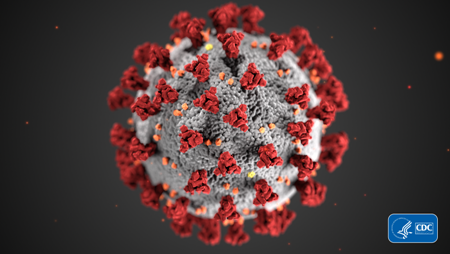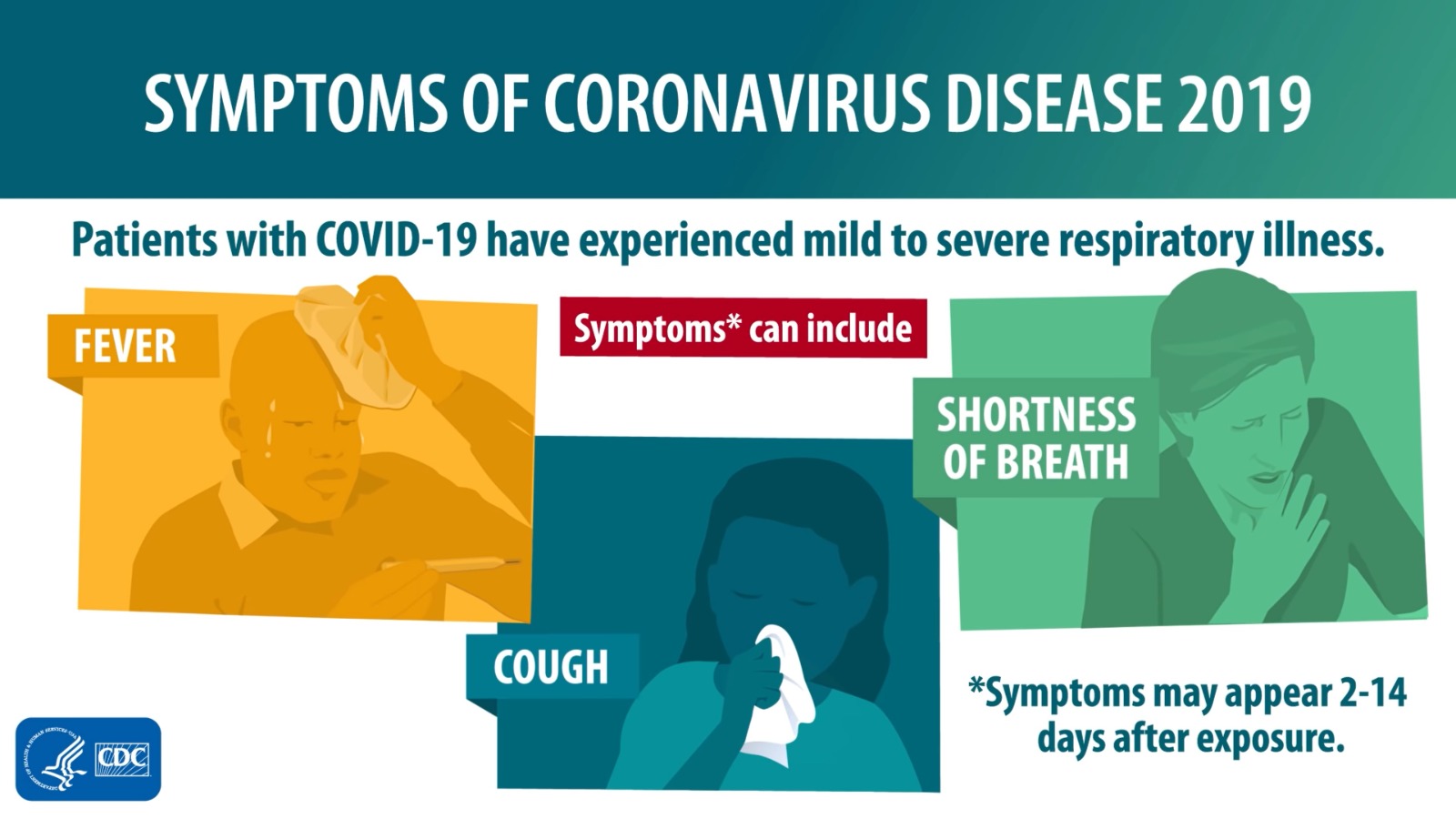
Currently, we are in the midst of a COVID-19 pandemic! Even though there is a lot of information available on the internet, at times, it can be overwhelming and daunting, especially for non-medical people. Those near and dear to my heart requested me to write this article to help them understand and relieve their stress. A Marathi version of this article can be found here.
Humans get infections by microorganisms like bacteria, viruses, fungi, and parasites. Among them, the virus is the smallest microorganism. Medicines are available for bacteria (antibiotics), fungi (anti-fungal), and parasites (anti-parasitic). Usually, the treatment for a viral infection is treating the symptoms (like fever, cough, cold, body ache), not the virus. However, there are few antiviral agents available for some specific viruses.

Coronaviruses are a large family of viruses. A new coronavirus called SARS-CoV-2, was first identified in the city of Wuhan, China, in late November-December, 2019. It is thought to be transmitted from animals to humans. Now, it is spreading from person to person. This virus is causing a respiratory disease known as Corona Virus Disease 2019, in short, “COVID-19.” It is a highly infectious disease and has been spreading all over the world. When an infectious disease spreads worldwide, it is called a pandemic.
You are suspected of having coronavirus only if you have:
- Symptoms (fever, cough, shortness of breath)
and
- Travel history to a coronavirus affected area
or
- Close contact with a positive corona person.
This illness can vary in different people, from mild symptoms to severe disease and death. Symptoms usually start a few days (2-14 days) after a person is infected with the virus. This period is called the incubation period. Quarantines are for people or groups who do not have symptoms but were exposed to virus. A quarantine keeps them away from others, so they don’t unknowingly infect anyone.
Mild symptoms1 can include:
- Fever
- Cough
- Trouble breathing

In around 81% of cases, symptoms are mild. They can rest at home until they get better. People with mild symptoms seem to get better after about 2 weeks, but it is not the same for everyone. Isolate yourself, stay hydrated. If the condition worsens, call your doctor and follow their instructions. Someone who has been released from isolation is not considered to pose a risk of infection to others.
In 14% of cases, it can be a severe illness, and they need to stay in the hospital and/or ICU (intensive care unit). They can show warning signs:
- Persistent pain or pressure in the chest
- New confusion or inability to arouse
- Bluish lips or face
In 5% of cases, a person can develop more complications like pneumonia, septic shock, organ failure, and death.
People older than 60 years, and already have other medical conditions like diabetes, high blood pressure, heart disease, lung disease are at risk for severe illness and more complications. People who have a weakened immune system either due to cancer, any other illness, or medications are also at higher risk.
The U.S. Food and Drug Administration (FDA) has approved the first rapid corona virus diagnostic test today (March 21st, 2020), with a detection time of about 45 minutes4
How does the Coronavirus spread?
- The virus does not spread through the air.
- It mainly spreads from person to person.
- This usually happens when a sick person coughs or sneezes near other people.
- The droplets from a cough or sneeze of an infected person enter a person through their nose, eyes, or mouth.
- COVID-19 seems to spread most easily when people are showing symptoms. It is possible to spread it without having symptoms.
- It can also spread through contact with contaminated surfaces, objects, or items of personal use.
- It can survive up to 8-10 hours over surfaces like paper, wood, cardboard, or fabric) and little more than this over glass, plastic, metals, and skin.
- It does not spread through food.
According to data from the Johns Hopkins Research Center in the United States:
https://www.arcgis.com/apps/opsdashboard/index.html#/bda7594740fd4029942 3467b48e9ecf6
As of today (March 21st, 2020), the total number of confirmed cases is 299,061, with total deaths 12, 762, and total recovered 91, 564.
What should be done to prevent infection?
- Wash your hand regularly with plenty of soap and water for 20 seconds (video).
- You can use an alcohol-based hand sanitizer containing >60% alcohol.
- Do not touch your eyes, mouth, or nose with unclean hands.
- Avoid handshakes
- Keep your distance of at least 6 feet or 2 meters from anyone coughing or sneezing.
- Do not sneeze or cough into your hands. Use a tissue and throw it away immediately, or sneeze in the inner side of your elbow.
- Avoid crowds and people who are sick.
- Even if you are healthy, limiting contact with other people can help slow the spread of disease. Experts call this “social distancing.”
- Practice Social distance, which is remaining at least 6 feet/2 meters away from other people.
- Avoid cruise travel and non-essential air travel.
- During a COVID-19 outbreak in your community, stay home as much as possible to further reduce your risk of being exposed.
- If someone in your home is sick, have them stay away from the rest of the household to reduce the risk of spreading the virus in your home.
- Avoid sharing personal household items such as cups and towels.
- Wipe all surfaces frequently with wipes.
- When pandemic started, wearing mask was not mandatory for people who do not have symptoms.
- Later, face covering or face mask use was made mandatory to prevent viral spread.
- 3 layer surgical mask will be fine. An N-95 mask is used by health care personnel who are taking care of suspicious or confirmed cases 2.

It is normal to feel anxious or worried about COVID-19. You can take care of yourself, and your family, by trying to:
- Take breaks from watching, reading, or listening to news stories, including social media. Hearing about the pandemic repeatedly can be unnecessarily upsetting.
- Educate yourself with the correct information from reliable sources.
- Get regular exercise and eat healthy foods. Foods rich in Vitamin C and Zinc will help to boost your immune system.
- Drink plenty of water and stay well hydrated.
- At least 6-7 hours of sleep daily.
- Try to find activities that you enjoy and can do in your home
- Stay in touch with your friends and family members
- Breathing exercises can be helpful to reduce stress or anxiety and improve your lung function. Take a deep breath in and try to hold it as much longer as you can. Do the same after breathing out. By practicing regularly, you can achieve breath-holding from 30 seconds to 2 minutes.
- Fear and anxiety about a disease can be overwhelming and cause strong emotions in adults and children. Coping with stress will make you, the people you care about, and your community stronger.
- Meditate
- Maintain a positive attitude 🙂
Treatment 3:
There is currently no specific treatment for or vaccine to prevent COVID-19. The best way to prevent illness is to avoid being exposed to this virus.
For mild symptoms, you need symptomatic treatment only.
Some medication trials are going on by using hydroxychloroquine (anti-malarial drug), Lopinavir/ritonavir (HIV drugs), Azithromycin (antibiotic), Remdesivir (antiviral medication) and Ribavirin (anti-viral medication) either alone or in combinations.
Remember 3Ps to defeat coronavirus!
- Protect yourselves.
- Protect your loved ones.
- Protect your community.
Take home message: It is essential to do what you can to lower your risk and help slow the spread of the virus. Try not to panic.

If you are below the age of 60 with no preexisting conditions, your chance of death is low. You have the responsibility, the duty, the dharma, to not spread the Corona Virus to others. It can be a death sentence to those that are the weakest, like the elderly. Stay home as much as you can and wash your hand regularly with plenty of soap and water for 20 seconds.
We will get through this together. The best we can do is take care of others while taking care of ourselves. This is our social responsibility!.
References:
- https://www.cdc.gov/coronavirus/2019-ncov/index.html
- https://www.uptodate.com/contents/coronavirus-disease-2019-covid-19
- http://www.uphs.upenn.edu/antibiotics/COVID19.html
- https://www.reuters.com/article/us-health-coronavirus-usa-fda/fda-approves-first-rapid-coronavirus-test-with-45-minutes-detection-time-idUSKBN218105?feedType=mktg&feedName=healthNews&WT.mc_id=Partner-Google

Very informative…nice article.
Hi, madam
It’s a very nice information about
Covid -19. & it’s helps to people who are scared.
Once again, very thankful to u ma’am.
నీ ఆర్టికల్ చాలా బాగా ఉన్నది డాక్టర్ సావిత్ర బండారి దీన్ని అందరూ పాటిస్తే కరోనా గురించి భయపడవలసిన పనిలేదు
You are right. Thank you 🙂